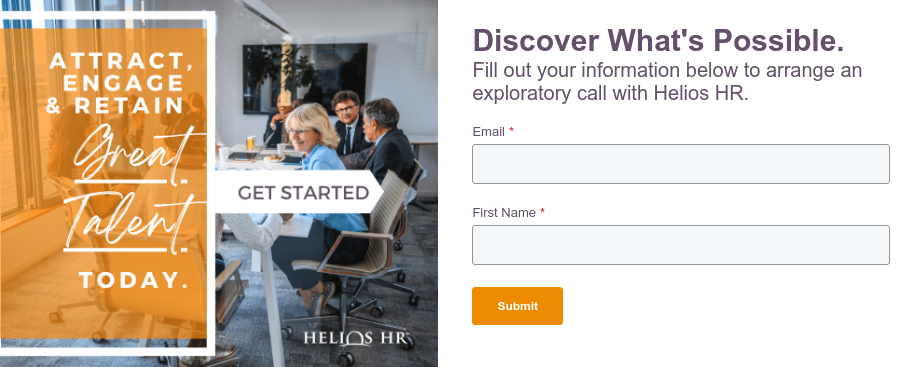By: Jenna Bishop on December 16th, 2024
Updating Your Employee Handbook? Watch Out For These Changes in 2025
Keeping the employee handbook up-to-date is one of the trickiest jobs in HR, especially when compliance rules change so frequently.
It's definitely worth the effort. The employee handbook remains a core part of your relationship with team members, allowing you and them to understand the precise rules of employment. If you fall behind on handbook updates, you could create problems further down the line.
What's changing in 2025?
As always, your annual handbook review will require you to understand regulations on a state, local and federal level. Some of the most important areas to focus on in 2025 include:
- Pregnant Workers Fairness Act
- Updated Harassment Enforcement Guidance
- New and Updated State Regulations
- Remote and Hybrid Work Policies
- Artificial Intelligence Policies
- Inclusive Language
1. Pregnant Workers Fairness Act
From a federal perspective, the Pregnant Workers Fairness Act (PWFA) was finalized and implemented in June 2024. Under the PWFA, employers are required to provide reasonable accommodations for qualified applicants and employees who have physical or mental conditions related to, affected by, or arising out of pregnancy, childbirth, or related medical conditions.
With this new regulation, employers will want to take a look at their Pregnancy Accommodation and other reasonable accommodation policies to ensure the language is compliant with the PWFA’s requirements. In addition, employers should make sure their managers are trained on how to respond to accommodation requests, even if the applicant or employee does not specifically mention they need an accommodation.
Need help identifying appropriate accommodations? The Job Accommodation Network (JAN) is a free resource with a wealth of information available for employers.
2. Updated Harassment Enforcement Guidance
In April 2024, the Equal Employment Opportunity Commission (EEOC) issued updated enforcement guidance regarding harassment in the workplace. This updated guidance consolidates and replaces five previous documents issued by the EEOC to create a unified resource on workplace harassment laws.
The guidance incorporates expanded protections against discrimination based on sexual orientation and gender identity. It also addresses issues that are newer to employers, such as harassment in the virtual work environment.
The EEOC also provides detailed explanations of liability standards for employers, which will help you understand your responsibilities and ways to create a respectful workplace. It also highlights protections for individuals from underserved communities and those who are particularly vulnerable to harassment.
3. New and Updated State Regulations
In addition to the federal regulatory updates, several states have passed new or updated legislation that will take effect in 2025. States with new and updated laws include:
- Sick leave regulations: Alaska, Connecticut, Michigan, Minnesota, Missouri, Nebraska, New York, Washington
- Paid family and medical leave contributions: Delaware, Maine, Maryland
- Pay transparency: Illinois, Massachusetts, Minnesota, New Jersey, Vermont
Several other states have passed additional legislation that may require employers to review their current handbooks and policies to ensure they comply with applicable state and local regulations.
We recommend reviewing updates for the states where you have employees working and updating your policies accordingly. For multi-state employers, this can be a big lift and daunting task; don't hesitate to bring in expert help when required.
4. Remote and Hybrid Work Policies
Employers continue to evaluate and evolve their return-to-office strategies. We recommend having a remote and/or hybrid work policy that addresses eligibility in terms of how remote or hybrid work arrangements are determined and expectations for employees who are working remotely or in the office on a hybrid schedule.
This may include dress code expectations, communication requirements, expectations for work hours, information security, workers’ compensation for remote workers, and other expectations and requirements.
5. Artificial Intelligence Policies
Artificial Intelligence (AI) continues to be a hot topic. Employers who are adopting AI technologies and those who are more cautious in their AI adoption will benefit from having a written AI policy. It’s likely that employees are using AI on their own, even if your organization hasn't officially adopted artificial intelligence.
In these policies, we recommend including definitions of various AI terms as well as information on ethics, transparency, and appropriate usage. Additionally, it’s important to include information about data privacy and security to educate employees on the importance of not uploading company-sensitive information into AI tools. On top of this, be aware of state regulations and other local compliance requirements.
6. Inclusive Language
The language in the employee handbook and associated policies plays a critical role in fostering inclusivity. As such, we recommend the use of inclusive language, such as gender-neutral pronouns and titles (e.g., using they/them instead of she/he/her/him). We also recommend including diverse cultural and religious practices in your accommodation policies and ensuring dress codes are not worded in a way that could be discriminatory based on hairstyles or grooming.
It’s also important to recognize different family structures, such as domestic partnerships and same-sex relationships, in policies such as parental leave, bereavement leave, family leave, and others. This is an area of growth and learning for every organization. Listen to employee feedback and make changes that support a positive, inclusive workplace culture.
Need help with your employee handbook?
Updating your employee handbook can require a surprising amount of work, especially if you're facing a lot of regulatory changes.
However, it really is essential that you keep these vital documents up-to-date. If you need advice or some expert HR help, book a call with Helios HR. Let's talk about creating an outstanding employee experience for your team.





